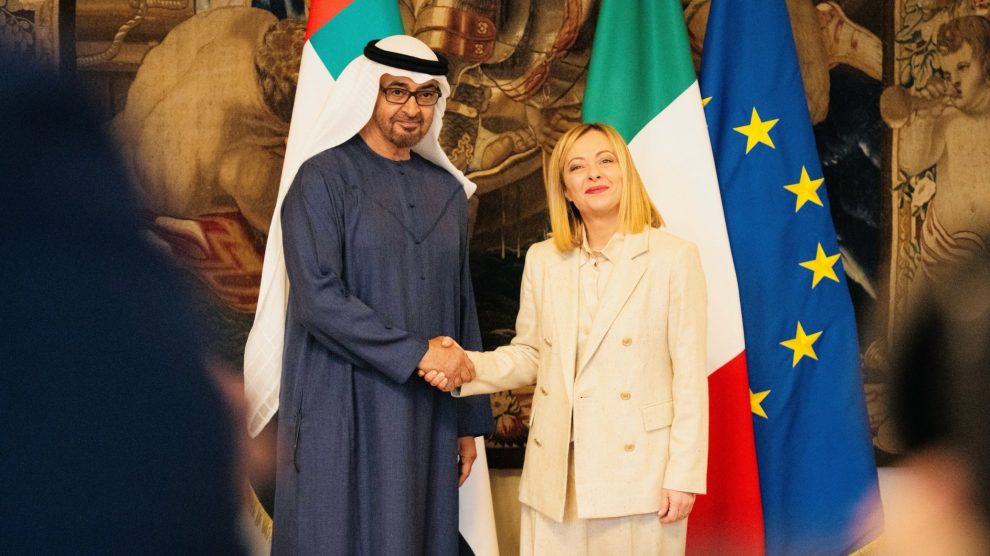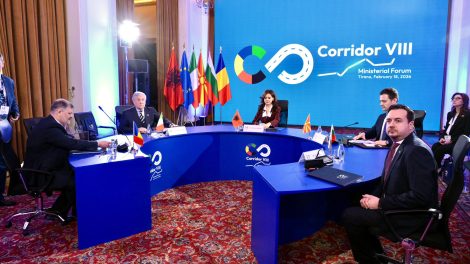Decoding the news. The Emirates Policy Centre (EPC) — the UAE’s leading think tank — has released an analytical brief on the Italy–UAE relationship. Its significance lies in the fact that it confirms:
- Bilateral ties are at an all-time high.
- Rome is perceived as a recognised actor by Middle Eastern powers.
- The Indo-Mediterranean dimension (IMEC) reinforces Italy’s centrality in global connectivity projects.
What’s on the table. On February 24, 2025, during President MBZ’s state visit to Italy, the two countries signed a $40 billion agreement covering artificial intelligence, data centres, rare earths, renewables, and infrastructure.
- This is more than a business partnership: it carries geopolitical weight, particularly for Europe’s energy and digital security.
The strategic picture. The GCC Studies Unit of EPC highlights several key elements in the Rome–Abu Dhabi relationship:
- IMEC: “Italy appears eager to assert its role in a dynamic landscape … Italy has taken a more cautious approach and has yet to officially nominate Trieste as Italy’s proposal for IMEC. … In January, an agreement was signed for a new underwater electricity cable between the UAE, Albania, and Italy, and a new underwater digital cable in the Adriatic from Sparkle, also functional to IMEC, is under design.”
- IMEC is far more than a network of trade routes; it’s a dynamic system that binds three pivotal regions into a seamless network,” UAE Ambassador to Rome Abdulla Ali AlSubousi explained to Decode39, referring to the shared vision of India, the UAE and Italy.
- Med vision: EPC refers to an “arc of development” integrating economy, education, and security.
Between Brussels and Abu Dhabi. A bilateral approach with the UAE does not weaken the EU.
- The think tank, under the leadership of Dr. Ebtesam Al-Ketbi, argues that such a bilateral approach could in fact serve as a lever for a broader EU–GCC partnership — provided Brussels seizes the opportunity.
- Challenges remain: regional instability, financing needs, and maritime vulnerabilities — with the Red Sea and Houthis threats in the Indo-Mediterranean standing out.





